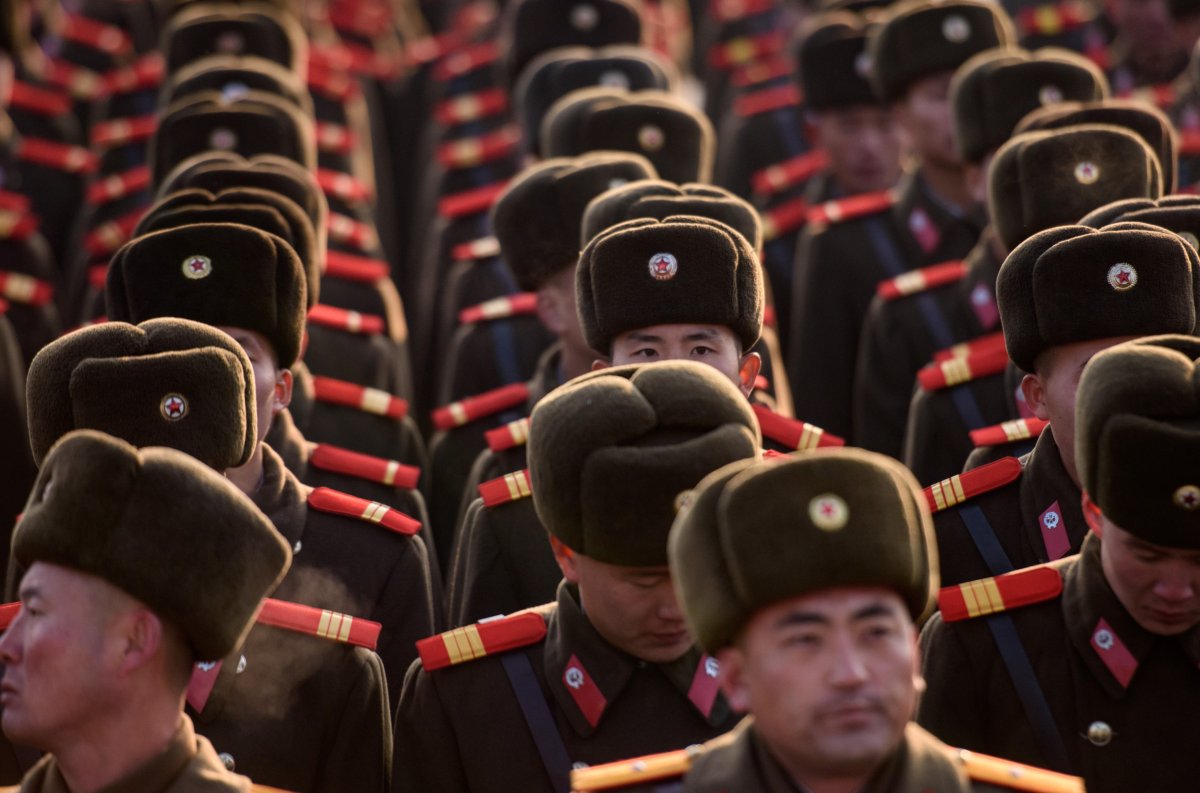North Korean troops joining Vladimir Putin’s war have come under fire for the first time, according to a Kyiv official, as a map by Newsweek outlines their journey from the East Asia peninsula to a European battlefield’s front line.
Andrii Kovalenko, the head of the counter-disinformation department at Ukraine’s National Security and Defense Council said on Monday that North Korean troops stationed in Russia’s Kursk region had faced attack, although he did not give further details.
“The first DPRK military has already come under fire in the Kursk region,” his Telegram post said, referring to the name of North Korea and the Russian oblast where Ukraine staged a surprise incursion in August.
There are varying estimates about how many North Korean troops are in the Russian region between 8,000 and 12,000 although there are question marks about their effectiveness.
“Putin anticipates that the presence of North Koreans will force Washington to issue further restrictions on Ukraine to prevent escalation,” geopolitical analyst and Ukrainian military veteran Viktor Kovalenko told Newsweek.
“However, Kyiv continues striking Russian troops inside Ukraine and in the Kursk region, suggesting that the elimination of North Korean forces along them would not result in an unusual escalation,” he added.
Kyiv’s announcement on Monday marks a monthslong journey to the battlefield by North Korean troops, according to South Korea’s National Intelligence Service (NIS).
It said that Seoul had detected North Korean troops moving to Russia as early as March 18. By early August, Kim Jong-sik, deputy director of North Korea’s munitions department had visited a KN-23 missile launch site near the Russia-Ukraine front with North Korean military officers, the NIS added, according to a translation.
North Korean special forces were also detected being sent to Russia via a Russian Navy transport ship “confirming the start of the North Korean military’s participation in the war,” the NIS said.

Copernicus Data Space Ecosystem
Last month, White House national security spokesman John Kirby confirmed the troop dispatch, saying they had been transported by ship between early and mid-October to eastern Russia from North Korea’s Wonsan area.
The NIS said landing ships and frigates transferred around 1,500 North Korean special forces to Vladivostok in what was the first Russian naval fleet entry into North Korean waters since 1990. Large Russian Air Force planes also flew between Vladivostok and Pyongyang.
North Korean soldiers were dispersed in Vladivostok, as well as other far eastern cities of Ussuriysk, Khabarovsk and Blagoveshchensk for training last month, according to the NIS.

ED JONES/Getty Images
Meanwhile, on October 24, the Kyodo News Agency cited a Ukrainian military source that 2,000 North Korean troops were being transported to western Russia following training in the first confirmed movement of soldiers. NATO confirmed their presence on the battlefield on October 28.
Mark Montgomery, senior fellow at the Foundation for the Defense of Democracies said that the North Korean troop presence will not make any immediate difference to Russia’s fighting power.
“What’s killing the Ukrainians is Russian artillery and really what I mean by that is North Korean artillery,” he told Newsweek, referring to the millions of rounds of ammunition Pyongyang has provided Moscow. North Korean troops “are an issue, but at the current burn rate of 1,100 people a day, that’s just 10 days of fighting them.”
Newsweek has contacted the Russian defense ministry for comment.

